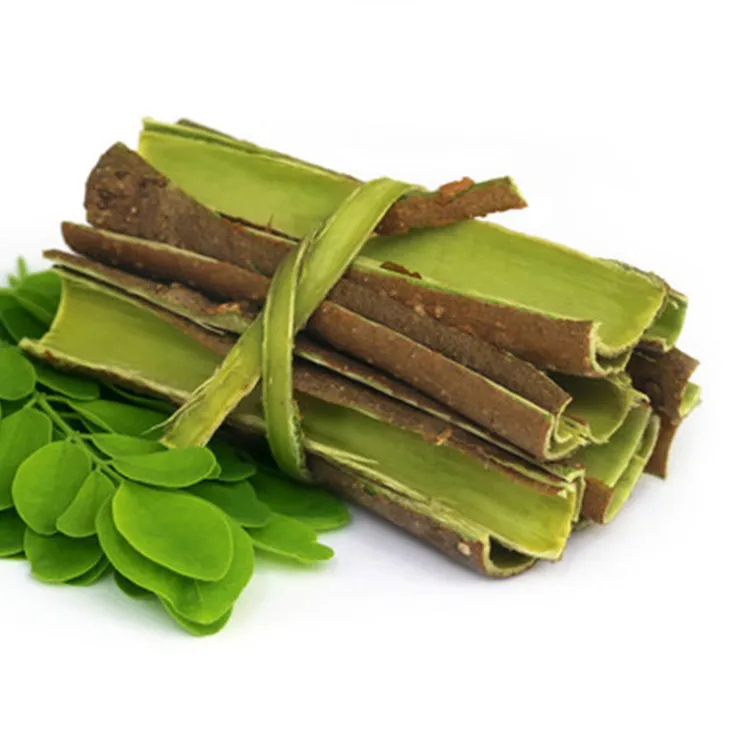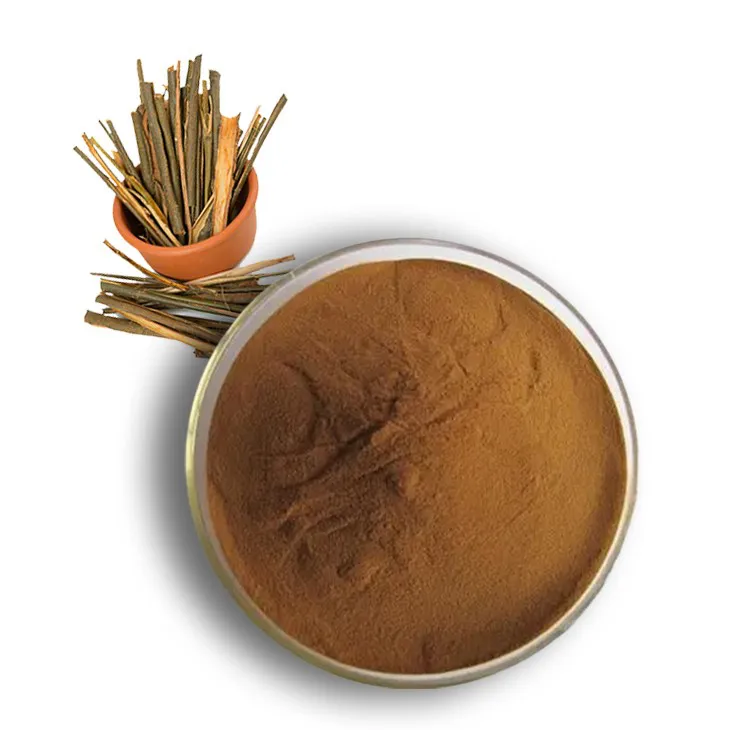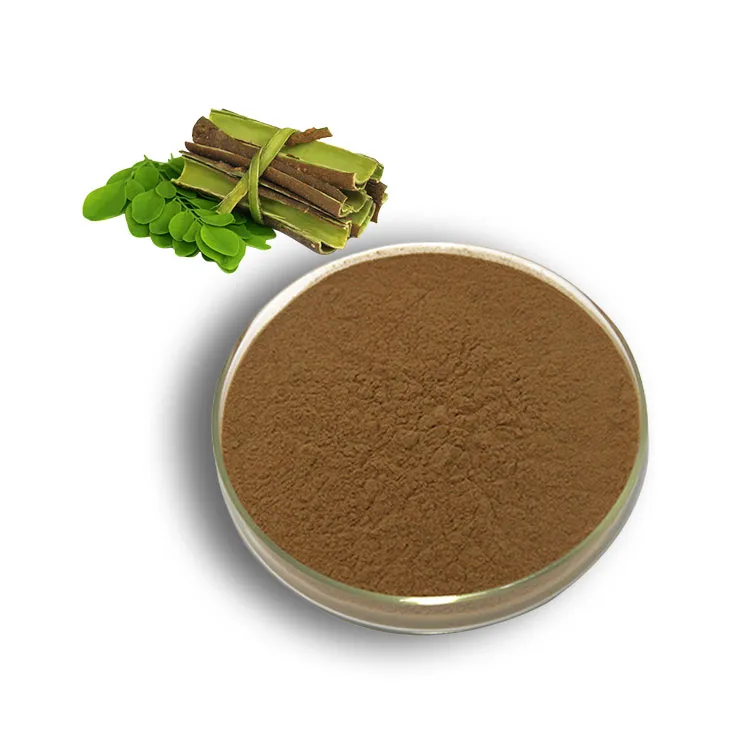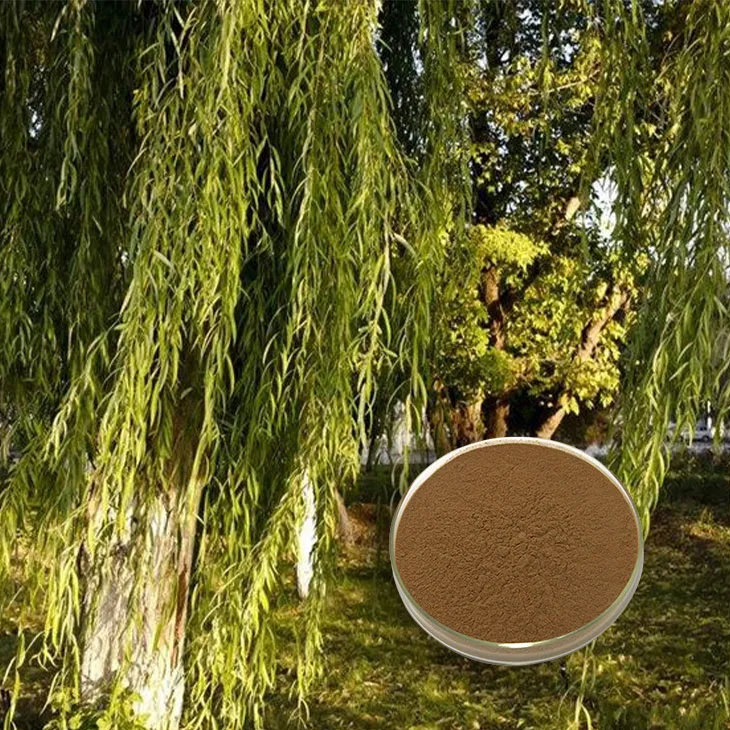- 0086-571-85302990
- sales@greenskybio.com
What is white willow bark extract? Definition, types, history and nutritional value.
2024-12-11

1. Definition
White Willow Bark Extract is a natural product that comes from the bark of the white willow tree, scientifically known as Salix alba. This extract is rich in a compound called salicin. Salicin is the key component that gives White Willow Bark Extract its characteristic properties. It is a type of phenolic glycoside. When the bark is processed to obtain the extract, other related compounds and substances may also be present in varying amounts, which can contribute to the overall efficacy and nature of the extract.

2. Types
2.1 Standardized Extracts
These are some of the most common types of White Willow Bark Extracts. Standardized extracts are carefully processed to ensure that they contain a specific and consistent amount of salicin. This is important for several reasons. For medicinal or supplement use, having a standardized amount of the active compound allows for more predictable effects. For example, a standardized white willow bark extract might be formulated to contain 15% salicin. This type of extract is often used in the production of dietary supplements, where quality control and consistency are crucial.
2.2 Crude Extracts
Crude extracts are less processed compared to standardized extracts. They are obtained through a relatively simple extraction process that may involve soaking the white willow bark in a solvent (such as alcohol or water) and then filtering the resulting solution. Crude extracts contain a complex mixture of compounds, including salicin, but also other substances from the bark. The amount of salicin in crude extracts can vary widely depending on factors such as the source of the bark, the extraction conditions, etc. While they may not have the precise consistency of standardized extracts, they are sometimes preferred in traditional or herbal medicine practices where a more "natural" form of the extract is desired.

3. History
The use of white willow bark for medicinal purposes has a long and rich history that dates back centuries.
3.1 Ancient Origins
Ancient civilizations were among the first to discover the potential benefits of white willow bark. The Egyptians, for instance, are believed to have used it to relieve pain and reduce inflammation. There is evidence that they may have been aware of the properties of white willow bark long before the modern understanding of its active components. Similarly, the Greeks also had knowledge of the medicinal value of white willow bark. The famous Greek physician Hippocrates, often regarded as the "father of medicine," is said to have recommended the use of white willow bark for various ailments, including fever and pain.
3.2 Middle Ages and Beyond
During the Middle Ages, white willow bark continued to be used in traditional medicine across Europe. Monasteries were often centers of herbal medicine knowledge, and the monks would cultivate white willow trees and use their bark for treating the sick. As time passed, the knowledge of white willow bark's medicinal properties spread further. In different regions, it was used to treat a range of conditions, from headaches and joint pain to more serious inflammatory diseases. However, it was not until much later that the specific active compound, salicin, was isolated and its mode of action better understood.

4. Nutritional Value
White willow bark extract is not typically considered a traditional nutritional supplement in the sense of providing common vitamins or minerals. However, it has significant value in terms of health management due to its active components.
4.1 Anti - inflammatory Properties
The presence of salicin in white willow bark extract gives it strong anti - inflammatory properties. Inflammation is a natural response of the body's immune system, but chronic inflammation can lead to various health problems, such as arthritis, heart disease, and certain types of cancer. By reducing inflammation, white willow bark extract can potentially help in the management of these conditions. For example, in the case of arthritis, it may help to relieve joint pain and swelling, improving the quality of life for those affected.
4.2 Analgesic Effects
Another important aspect of white willow bark extract's nutritional value is its analgesic (pain - relieving) effects. Salicin is converted in the body to salicylic acid, which is related to aspirin. This conversion is part of what gives white willow bark extract its ability to relieve pain. It can be used to treat mild to moderate pain, such as headaches, muscle aches, and back pain. Compared to synthetic painkillers, white willow bark extract may offer a more natural alternative for those who prefer to avoid chemical medications.
4.3 Other Potential Health Benefits
There are also some emerging research findings suggesting other potential health benefits of white willow bark extract. Some studies have indicated that it may have a role in improving cardiovascular health. It could potentially help in reducing blood pressure and improving blood flow. Additionally, there is some evidence that it may have antioxidant properties, which can help protect the body against damage from free radicals. However, more research is needed to fully understand and confirm these potential benefits.

5. Conclusion
White willow bark extract is a fascinating natural substance with a long history of use. Its different types, depending on the extraction method, offer various options for its application in medicine and health management. While it may not be a traditional source of vitamins or minerals, its anti - inflammatory, analgesic, and potential other health - promoting properties make it an important area of study and a valuable natural remedy. Continued research is likely to uncover more about its mechanisms of action and potential applications in the future.
FAQ:
What are the main extraction methods for white willow bark extract?
Common extraction methods include solvent extraction. For example, using ethanol or water as solvents to extract the active components from the white willow bark. Another method could be supercritical fluid extraction which can be more efficient in obtaining the desired compounds with better purity in some cases.
How does the anti - inflammatory property of white willow bark extract work?
The salicin in white willow bark extract is converted in the body to salicylic acid. Salicylic acid can interfere with the production of certain chemicals in the body, such as prostaglandins, which are involved in the inflammatory response. By reducing the levels of these chemicals, it helps to decrease inflammation.
Can white willow bark extract be used as a substitute for aspirin?
White willow bark extract contains salicin, which is similar to the active ingredient in aspirin. However, it is not a direct substitute. The effects and potency may vary. Also, white willow bark extract is a natural product and may contain other compounds that could have different effects or interactions. Moreover, the dosage and safety profiles are not exactly the same as aspirin, so it should not be used casually as a substitute without proper medical advice.
What are the potential side effects of using white willow bark extract?
Some potential side effects may include stomach irritation, nausea, and in some cases, allergic reactions. Since it can affect the blood - clotting mechanism (similar to aspirin), it may increase the risk of bleeding in some individuals. Pregnant or breastfeeding women should also be cautious as there is not enough research to confirm its safety in these situations.
How has white willow bark extract been used in traditional medicine?
In traditional medicine, white willow bark extract has been used to relieve pain, reduce fever, and treat inflammatory conditions. For example, it was used for headaches, joint pain, and rheumatic ailments. It was often prepared as a decoction or tincture and administered orally.
Related literature
- The Pharmacological Properties of White Willow Bark Extract"
- "White Willow Bark Extract: A Historical and Contemporary Review"
- "Nutritional and Therapeutic Aspects of White Willow Bark"
- ▶ Hesperidin
- ▶ Citrus Bioflavonoids
- ▶ Plant Extract
- ▶ lycopene
- ▶ Diosmin
- ▶ Grape seed extract
- ▶ Sea buckthorn Juice Powder
- ▶ Fruit Juice Powder
- ▶ Hops Extract
- ▶ Artichoke Extract
- ▶ Mushroom extract
- ▶ Astaxanthin
- ▶ Green Tea Extract
- ▶ Curcumin
- ▶ Horse Chestnut Extract
- ▶ Other Product
- ▶ Boswellia Serrata Extract
- ▶ Resveratrol
- ▶ Marigold Extract
- ▶ Grape Leaf Extract
- ▶ New Product
- ▶ Aminolevulinic acid
- ▶ Cranberry Extract
- ▶ Red Yeast Rice
- ▶ Red Wine Extract
-
Green Tea Extract
2024-12-11
-
Hawthorn powder
2024-12-11
-
Shikonin
2024-12-11
-
Ivy Extract
2024-12-11
-
Sea buckthorn Juice Powder
2024-12-11
-
Sugarcane Extract
2024-12-11
-
Soy Extract
2024-12-11
-
Lemon Juice Powder
2024-12-11
-
Withania Somnifera Extract
2024-12-11
-
White Willow Bark Extract
2024-12-11




















